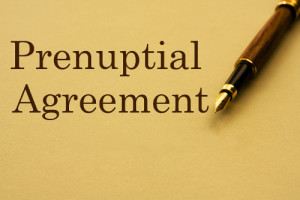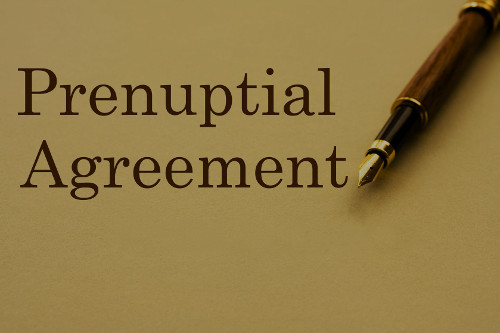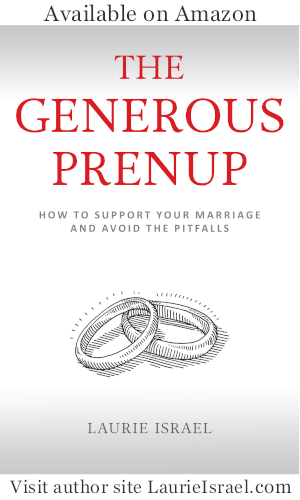In the first part of this article, Prenups — Don’t Lawyer Up, Mediate! — Part I: “The Problem”, I discussed the dangers in doing prenups the usual way — lawyering up and making it like an adversarial business deal. This usually results in a very bruising and destructive encounters between the future spouses (and their attorneys) right before the marriage. And the quality of the resulting prenup can be very poor, as it may not be tailored to the needs and aims of the future spouses. A prenup like that (and the negotiation process that produced it) can create lasting harm to the health of the marriage.
In this Part II: “The Solution”, I describe how future spouses can use mediation to formulate the terms of their prenup. Mediating prenups has many great advantages over negotiating prenups, the latter which uses “traditional” lawyer-based methods.
 A Better Alternative – The Mediated Prenup.
A Better Alternative – The Mediated Prenup.
A significant part of my practice has been as a mediator between two fiancés who wish to put a prenup into place for good reasons. My mediation clients have found the mediation process to be a much better way for them to come to terms when a prenup is needed.
In mediation, the couple formulates the terms of the prenup, face-to-face, with the assistance of the mediator. Unlike “lawyering up,” they are modeling communication, collaboration, and mutual understanding and respect in coming to the terms of the prenup. This action at the outset of their marriage is an achievement that reflects the connecting process of a good marriage.
Here are some of the steps of a mediated prenup:
Choose a mediator. I think it’s best to choose a divorce mediator to help a couple mediate a prenup. Another reason for choosing a divorce mediator is that they have great experience in seeing what makes marriage fail, and conversely, what makes them not fail. Since a good part of the prenup deals with what happens at a divorce, a divorce mediator is probably in the best position to help the couple imagine fair and workable provisions in case the marriage fails, especially if it fails far into the future.
And, because the result will be a complex legal agreement (generally drafted by the mediator), the mediator should be a lawyer. Make sure the mediator/lawyer is experienced in drafting prenuptial agreements and in divorce law.
Discuss your concerns and interests in mediation sessions. The prenup mediator will guide your discussion. The mediator can help you envision what the prenup will say about what happens at death or divorce. The mediator will give you explicit information as to what the law in your jurisdiction provides in the case of divorce or death, so that you will know exactly how you would be changing that law in the prenup.
Usually an “off-the-shelf” prenup is like cutting butter with a meat-cleaver. Because the prenup mediator is experienced in drafting prenups, he or she can help by suggesting creative provisions that you may not even be aware of.
For instance, you can create an area of joint economic venture in the marriage. This domain can increase with the length of the marriage. Or there can be a gradual sharing of separate assets based on the length of the marriage. In short, the mediator can suggest the most efficient and humane way of achieving each of your mutual (and separate) goals in the most effective and narrow way possible, leaving your marriage intact.
Mediation levels the playing field. A mediator is a neutral party who works to hear each side and level the playing field. Each of the future spouses will be able to express his/her thoughts about what the prenup should do. A party can also, in the mediation session, express the opinion that no prenup is needed. The mediator can help the couple reconcile differences in a fair way that is satisfactory to each. Mediation does not feel like bullying. The parties are in control of the process.
In order for it not to hurt the marriage, a prenup must not be coercive. This is also a requirement for a prenup to be enforceable. Each party must freely and voluntarily agree to the terms. If the agreement is not coercive, the parties will likely stand behind it if there is an initiating event that causes it to come into play. There is no better way to come to a true meeting of the minds than to do it face-to-face in mediation sessions with an experienced prenup mediator.
Reviewing attorneys. In most cases, the mediation clients have reviewing attorneys look at the agreement. The parties’ attorneys can provide input during the process and can be a helpful part of the mediation process. They can make good suggestions as to how to make the prenup better and more reflective of the future spouses’ goals.
The mediator can refer the couple to “mediation friendly” reviewing attorneys. These attorneys are sensitive to the dangers of prenups, are their client’s advocate, but also understand and support the terms their client may wish to make in the agreement. These attorneys will not substitute their own idea of “what a prenuptial agreement should be” and will respect their client’s decisions. In this area, sometimes advocacy is not served by having a client get the “best financial deal possible,” but by addressing and meeting real concerns and client goals as least restrictively as possible.
How it feels. My prenup mediation clients report that they are very happy with the mediation process. They still feel very good about each other as they embark on their wedding day, and support the terms of the prenup. This has the effect of making the prenup more enforceable if it ever needs to be put into effect.
The more moneyed spouse doesn’t feel like a bully, because he wasn’t one. The other spouse doesn’t feel bullied. They both feel that the final agreement reflects both of their needs and interests.
They have performed the first difficult act of their marriage and have done it well. They can walk down the aisle with their heads held proudly. The mediated prenup has not hurt their chances of having a strong, lifetime marriage.
© Laurie Israel 2011.
- Mediation – A Sound First Step to a Successful Prenup - September 27, 2022
- The Art of the Term Sheet - May 18, 2022
- Learning from Every Mediation - August 4, 2021


